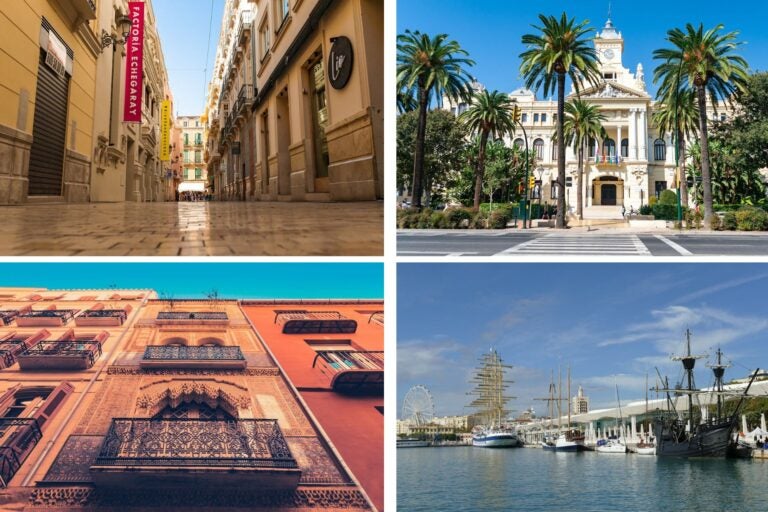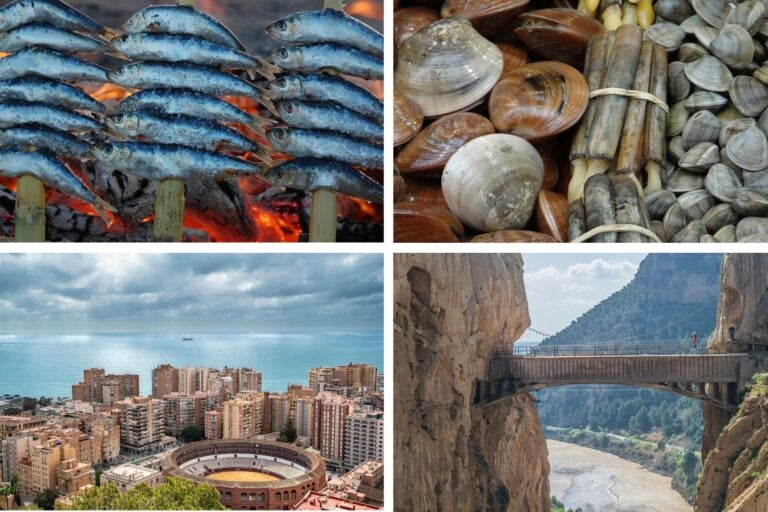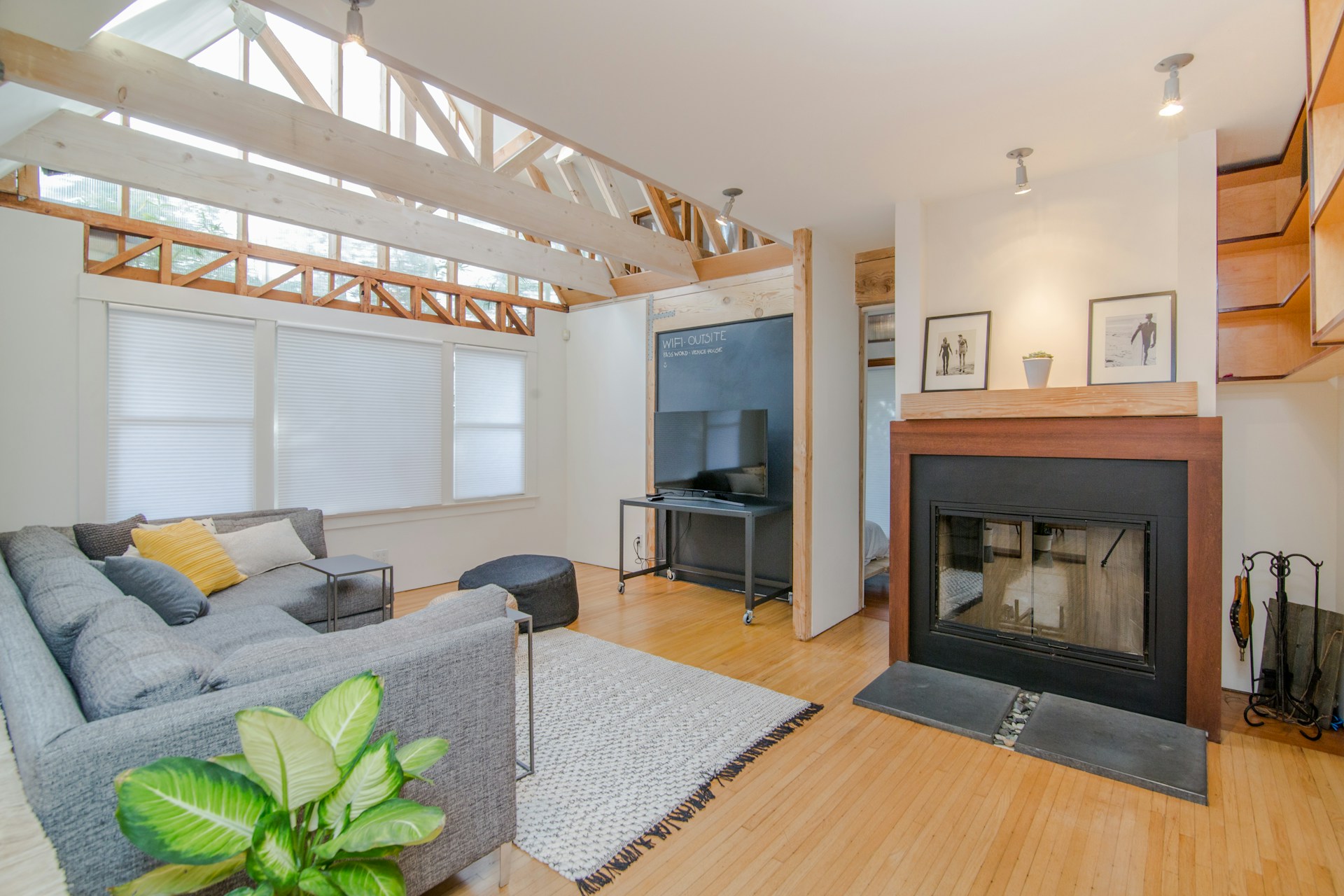Live in Málaga: Learn advantages, disadvantages & costs
Want to know what it's like to live in Málaga as a foreigner? We bring you the best guide to find out everything this city has to offer.
This city is one of the top destinations on Spain’s Costa del Sol, located in the southern region of Andalusia, with a population of about 580,000. Have you ever thought about what it’s like to live in Málaga for a while? We’ve put together an article to guide you through the most important things you need to know if you’re planning to settle here as a foreigner.
If you are a digital nomad looking to enjoy remote work under the sun, a student coming to Málaga for a university program, or simply a traveler thinking about staying longer to really experience the city, this guide will help you prepare for your stay and might even give you the final push to decide if Málaga is right for you.
We’ll cover what you need to know about the local education system, healthcare, the economy, job salaries, safety, and internet connectivity, along with the key pros and cons of the city. Don’t miss out on what we’ve put together for you!
Quality of life in Málaga
People choose a city to live in when it offers the right mix of opportunities and quality of life. For some, that might mean building a career as a digital nomad, employee, or entrepreneur. For others, it could be about pursuing studies or simply enjoying a quiet place to spend some time. Málaga ticks many of those boxes, so let’s explore what makes the city appealing in terms of education, healthcare, safety, the economy, and connectivity.
Education in Málaga
If you are thinking about moving to Málaga as an international student, you’ll be glad to know the city offers a high-quality education system with a wide variety of programs in both public and private schools. But how do you actually get started?
The Spanish government offers a range of scholarships for international students, such as those from the MEC, and you can also apply for European programs like Erasmus+ or funding directly from the universities. If you need a student visa to live in Málaga for the duration of your studies, you can apply for it through the Spanish embassy or consulate in your home country.
One of the top universities you can attend is the University of Málaga (UMA), known for its excellent faculty and research programs. According to El Mundo’s 2025 ranking, three UMA degrees, Tourism, Journalism, and Telecommunications Engineering, rank among the top five in Spain. If you are interested in business studies, the private ESSCA School will open a Málaga campus in the summer of 2025, offering undergraduate and master’s programs in international business, management, and artificial intelligence, further establishing Málaga as an educational and tech hub in Europe.

Healthcare system in Málaga
Healthcare in Málaga is provided through the Andalusian Health Service (SAS), which offers high-quality public medical care free of charge. The city’s most well-known hospitals are the Hospital Universitario Virgen de la Victoria and the Regional de Málaga. But can you access free healthcare as a foreigner? Here’s what you need to know.
- European Health Insurance Card (EHIC): All EU citizens can apply for this card in their home country, which gives them the right to receive free medical care at hospitals in Málaga.
- For workers: If you are working and contributing to the Spanish social security system, you and your dependents are entitled to free healthcare.
- Special agreement: For foreigners who are not working in the city, it is possible to join Andalusia’s Special Social Security Agreement, which allows you to access healthcare by paying a monthly fee.
- People without resources: Even if your status is irregular, you can register as a resident and apply for the healthcare document for those with limited resources, which ensures you have access to medical care.
To get a health card in Málaga, you first need to be registered at the town hall. Then you can go to any health center in the city, where you will receive your card by presenting the following documents: your ID or passport, proof of registration, and either your social security affiliation or documentation for the special agreement.
Live safely in Málaga
Málaga is considered safer than many other Spanish cities, with a crime rate below the national average, according to the Ministry of the Interior. The most common offenses are petty theft, burglaries, and traffic-related incidents. If you are looking to live in Málaga in the safest and most peaceful neighborhoods, consider Teatinos, El Limonar, Pedregalejo, and Huelin.

Economy and wages in Málaga
The cost of living in Spain is generally lower than in other European countries like Germany or Switzerland, and living in Málaga is specifically more affordable than in Madrid or Barcelona. For example, renting a one-bedroom apartment in the city center can start at around $792 per month.
If you are planning to live in Málaga and start a business, these are the city’s main economic sectors, according to the National Statistics Institute (INE) and the Málaga Socioeconomic Observatory:
- Tourism and hospitality
- Technology and innovation (Andalusia Technology Park)
- International education and training
- Construction and real estate
- Logistics and transportation
- Business services and private healthcare
You might be wondering how much you could earn working for a local company. Salaries here are generally lower than in Madrid or Barcelona, but the cost of living is also lower, so it balances out. Here are some examples of annual gross salaries, based on data from the INE and the job portal InfoJobs (2024):
- Programmer: Between $30,567 and $45,285
- Digital marketing professional: Between $28,303 and $43,021
- Waiter: Between $18,115 and $22,642
- Language teacher: Between $20,378 and $28,303
This is what internet connectivity is like in Málaga
If you’re planning to live in Málaga and work remotely as a digital nomad, you’ll find the city well-equipped with modern internet infrastructure. Fiber optic connections are widespread, the average download speed reaches around 300 Mbps, and 4G covers almost the entire city, with providers like Orange, MásMóvil, Movistar, and Vodafone.
You can also work remotely under excellent conditions at some of Málaga’s top coworking spaces, such as The Living Room, Grow Working, or Innovation Campus. If you want reliable connectivity anywhere in the city, Holafly’s monthly plans are a great option, offering 5G coverage, unlimited data, and a stable connection for video calls, streaming, online learning, and remote work for $64.90.
Important: If you are a frequent traveler and want to stay connected without worrying about expensive roaming or looking for a new SIM at every destination, Holafly’s subscription plans are for you. With a single eSIM, enjoy internet in more than 170 countries for a fixed price and no surprises on your bill. Travel without limits and connect easily and securely! 🚀🌍

Advantages of living in Málaga
Can you picture yourself living in Málaga? Spending your days working remotely from a sunny terrace, enjoying a calm and social lifestyle, and quickly making friends thanks to the warm and welcoming locals. Beyond all the benefits we’ve already highlighted, the city has even more advantages waiting for you.
- Mild climate in winter: Living in Málaga means enjoying one of the best climates in Europe, with over 320 days of sunshine a year and mild temperatures even in winter, averaging around 18 °C.
- Cultural and leisure activities: The city offers a wide range of activities, from visiting its museums and theaters to enjoying concerts, the famous Málaga Film Festival, or the celebrations of Holy Week.
- Gastronomy: Málaga’s cuisine blends fresh ingredients from both land and sea, offering dishes that will leave you wanting more. Some of the city’s most popular specialties include sardine skewers, porra antequerana, and the traditional Málaga-style fried seafood
- Accessibility: Málaga Airport offers direct flights to over 130 destinations, making it easy to explore other European cities or travel back to your home country. In addition, the high-speed train to Madrid (AVE) takes just two and a half hours.
- Digital ecosystem: Málaga has been nicknamed the new “Silicon Valley” of southern Europe, thanks to Málaga TechPark (PTA) and the arrival of companies like Google, Oracle, Vodafone, and Citigroup, creating a growing hub of job opportunities.

Disadvantages of living in Málaga as a foreigner
Living in Málaga comes with few downsides, but it is worth knowing about some of the less ideal aspects so you can make a fully informed decision. For example, summers in this city, like much of southern Spain, can get very hot, but a strong fan or air conditioning usually takes care of that.
- Language barrier: You will need a basic level of Spanish for everyday tasks like shopping, visiting the doctor, or handling administrative paperwork, since English is mostly spoken only in tourist areas.
- Mass tourism: During the summer, Málaga gets crowded with tourists, which can affect rent prices, create traffic, and disturb the peace in neighborhoods like the city center, La Malagueta, and El Palo. Nights can be particularly noisy because of the lively bar and pub scene.
- Hot summers: Although winters are mild, summers can be intense, with temperatures exceeding 38 °C. During July and August nights, having air conditioning at home is essential for a good night’s sleep.
- Overcrowded public services: In the summer and along the coastal areas, health centers can get a bit crowded due to the seasonal population increase, so appointments may take longer than usual.
Frequently asked questions about living in Málaga
You can communicate in English in tourist areas, but we recommend learning a few phrases in Spanish to help you integrate.
The city has an efficient public transport network, including buses and the metro, making it easy to get around. You can also rent bikes or electric scooters for added convenience.
For a single person, the monthly cost can range from around $1,358 to $1,698, depending on the area you live in, and including rent, food, and transportation.
Málaga is a top choice for digital nomads, offering sunny weather, a reasonable cost of living, reliable internet, plenty of coworking spaces, and a vibrant community, particularly in areas like Soho and El Palo.
Some of the quietest and safest neighborhoods to live in Málaga include Teatinos, which has a university and residential vibe; El Limonar, known for its calm and upscale atmosphere; Soho, a central and artsy area; and Pedregalejo, located close to the sea.





 Language
Language 


















 No results found
No results found







